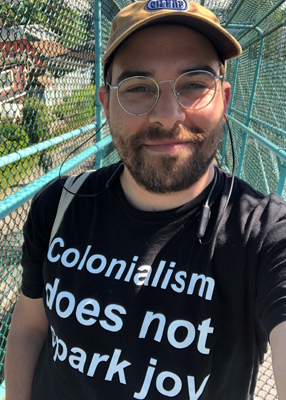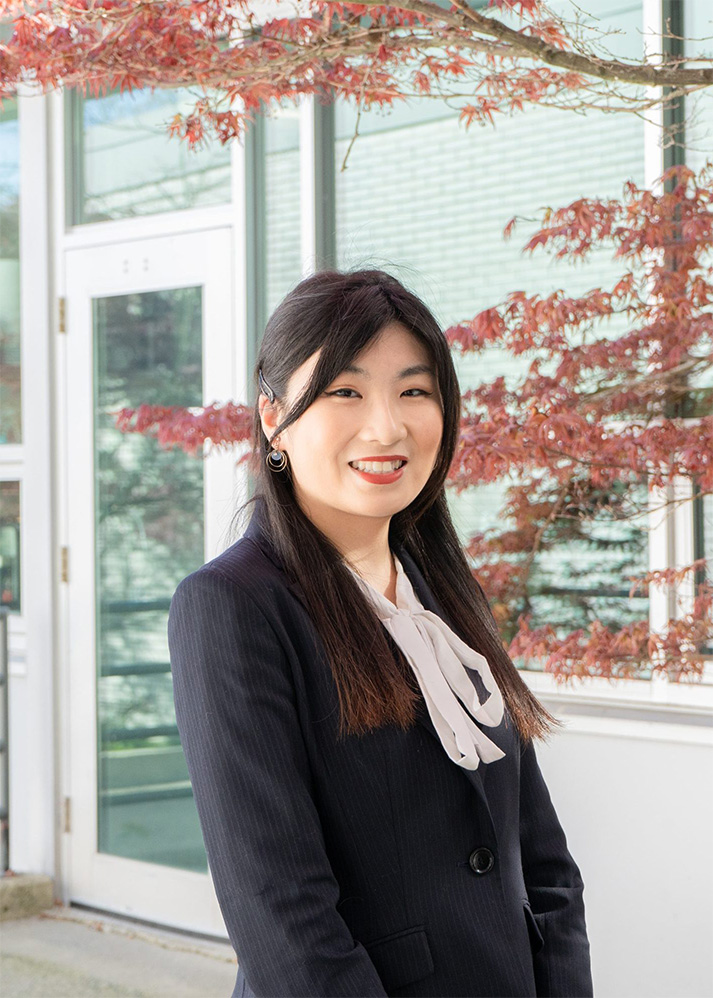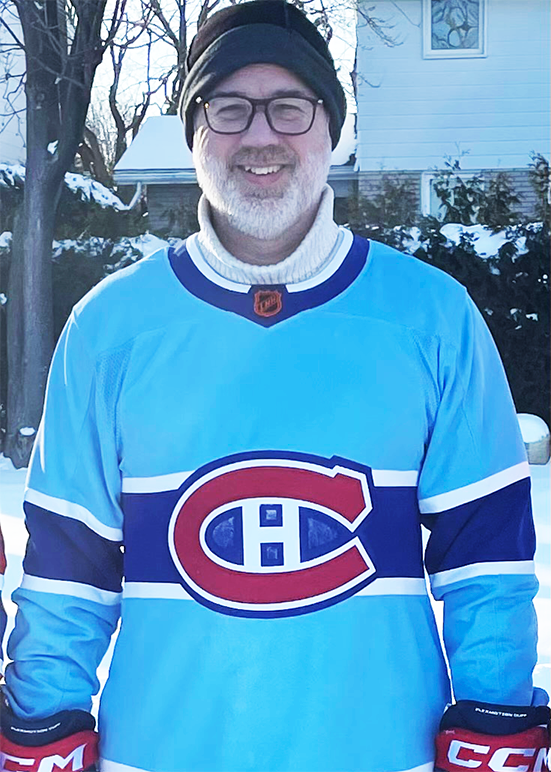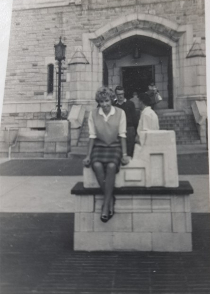Spencer Lindsay

Spencer Lindsay was born and raised on the unceded territory of the Lekwungen-speaking Esquimalt and Songhees Nations, also known as Victoria, BC. He is Métis-Cree, Scottish, English and German. He now lives in East Vancouver, on the unceded territories of the Musqueam, Squamish, and Tsleil-Waututh Nations, working for Vancouver Coastal Health as Project Manager, Aboriginal Health. In this interview he talks about choosing the right job, building reciprocal relationships with community members, and First Nations Studies faculty having his back.
Why did you choose to study First Nations Studies and what did you enjoy most about it?
I decided to study First Nations Studies because I grew up disconnected from my Métis heritage and I was really interested in learning more.
I enjoyed the small faculty size and the fact that I got to know my professors. I often tell a story about a First Nations Studies 200 class. The professor was really interested in engaging the students. She didn’t have a strict lesson plan. First half of the class, we read and discussed a lot of novels. In the second half, we had speakers: an expert witness from a Métis hunting and fishing rights case, an Indigenous person working for the federal government, a direct action activist who fought against clear-cut logging. It opened my eyes to how many different things I could do with a career based on First Nations Studies.
I thought I was going to major in political science. But because that class was so engaging, and there was space for us to bring ourselves to the class, I stuck with it and ended up majoring in First Nations Studies.
After finishing your undergrad in First Nations Studies, did you immediately go into your masters after that?
No. At the end of my studies, I took a class that was all about revitalizing Indigenous languages. I met Sarah Ling in that course and she asked if I wanted to do something for the student leadership conference coming up. She was working at Totem Park Residence, and I went to Totem Park Residence as a first year. We both knew that it was screwed up that they have these appropriated, anglicized names (Haida House, Shuswap House, etc.) with no context given. In first year, we did the Day of the Longboat there; kids called their team ‘the savages’ and they wore feathers. We knew that was a problem.
So Sarah booked a meeting with the head of UBC Housing and Hospitality Services. We got to meet the head guy, and we explained why this was a problem. He said, “We’re starting to build two new buildings at Totem Park. Why don’t you help us name it?” We ended up, as students, leading this naming process. It wasn’t a cakewalk. We had to fight against an organization that would rather have an English name and would rather have it be easy. I developed skills in working with Indigenous communities and that’s what I do as a career now. That whole project of getting həm̓ləsəm̓ and q̓ələχən House at Totem Park named by Musqueam was the reason that I started thinking about doing Indigenous Community Planning, which is what I did in grad school at SCARP. And I also want to say that when we would hit a wall, it was the people in First Nations Studies that I’d forged relationships with—Linc Kesler or Glen Coulthard—who would back us up.
What was your first job after getting your masters?
I started by taking over a contract from my roommate, who was going back to school. It was with the Mount Pleasant Neighbourhood House, which is like a community centre, but more grassroots. They often have seniors’ programs, childcare, and do a lot of settlement work with immigrants. After finishing that contract, they worked with the Cedar Cottage Neighbourhood House to create a shared position. I did a civic engagement campaign, neighbourhood walking tours, and a film project on the role of small businesses in community development.
What challenges did you face throughout your career and how did your education help you overcome those challenges?
When I’ve hit really hard patches in my career, sometimes it’s because I was going for the title because I thought it sounded like the job I “should” be doing. I didn’t ask enough questions about, “What does the work entail? Who will I be working with?” I went into it and I learned what I don’t want to do. But I probably could have found a job that fit my strengths and met my own needs.
It’s okay to try out a job and it not be for you, but you have to have the right type of manager. I’m a person who needs to get to know you first, build a lot of trust, and work with you closely. I need someone who’s not afraid to talk about emotions and share. You really have to interview the people that you’re working for. It’s hard, especially as a young person not to just think, “Wow, they’re actually taking a chance on me, I should take it.” I’ve learned through my career, it’s as much about where I want to be, and who I’m working with, than trying to fit the mold.
What are specific skills that you learned during your undergrad that have helped you throughout your career?
The theory and methods classes in First Nations Studies spent a lot of time helping us understand the importance of research ethics. Not as in “this is a form you need to get filled out to meet a requirement,” but rather, “this is the history. This is the type of damage researchers have done to Indigenous communities.” My strength as a professional is doing community engagement. I learned a lot of those values in First Nation Studies.
I did my undergrad practicum in 2009/10 with the Britannia Community Centre. They were working on a master plan. I was shadowing someone who was doing focus groups with Indigenous mothers. Then I went around and I interviewed all these different community members.
Then in 2017, I got hired by the City of Vancouver to be their first Indigenous engagement specialist, working on the next iteration of the Britannia Community Plan. I showed up in that first meeting with the executive director at Britannia, the same person I did my practicum with. She was just so happy to see me. Our team ended up winning the International Association of Public Participation national award for Indigenous engagement that year by putting into play the ideas of, when you’re doing work with Indigenous communities, you’re not extracting, it has to be reciprocal.
Now I have all these elders in my life that I met through Britannia. That project has been over since 2018, but I still have lifelong connections and mentors far after that.
This year there was a student from First Nations Studies who did a practicum at Britannia. Professor Daniel Justice introduced him to me. I walked him around Britannia, showed him the organization’s principles, and let the elders know he was coming. I had trust in him because Daniel said he was good. Then the elders had trusted him because I introduced him. It’s full circle. I told him after he was done, “You know you’re gonna be back. Right?”
The thing I learned from First Nations Studies is we’re as much learning from community as we are taking our expertise and sharing it with the public. It’s really easy as an expert to come in and come off like you know what needs to happen in this community and other people don’t. Indigenous Studies is always questioning. Who is the expert? Who am I in this? If I didn’t have that, I wouldn’t be able to do what I do.
What advice would you give Indigenous students starting out at UBC?
If I could go back, I would learn a lot more about the different services that are available. I struggled a lot in my first year with my mental health. It wasn’t until my last semester in grad school that I went to a group therapy session at Student Services. It was so useful. I wish I would have done that earlier. Same with thinking someone else deserves this scholarship more than me. No! There’s money there, use it.
No matter how isolated you feel, there are people there who understand what you’re feeling. There are a lot of people who understand what that’s like to be an Indigenous student, people who broke ground and created services and systems for you, services and programs you deserve to access.
And I’m always willing to make time for Indigenous students who want to network, learn more about my field of work, or just vent. If that’s you, feel free to reach out to me on LinkedIn.
Spencer Lindsay



Spencer Lindsay was born and raised on the unceded territory of the Lekwungen-speaking Esquimalt and Songhees Nations, also known as Victoria, BC. He is Métis-Cree, Scottish, English and German. He now lives in East Vancouver, on the unceded territories of the Musqueam, Squamish, and Tsleil-Waututh Nations, working for Vancouver Coastal Health as Project Manager, Aboriginal Health. In this interview he talks about choosing the right job, building reciprocal relationships with community members, and First Nations Studies faculty having his back.
Why did you choose to study First Nations Studies and what did you enjoy most about it?
I decided to study First Nations Studies because I grew up disconnected from my Métis heritage and I was really interested in learning more.
I enjoyed the small faculty size and the fact that I got to know my professors. I often tell a story about a First Nations Studies 200 class. The professor was really interested in engaging the students. She didn’t have a strict lesson plan. First half of the class, we read and discussed a lot of novels. In the second half, we had speakers: an expert witness from a Métis hunting and fishing rights case, an Indigenous person working for the federal government, a direct action activist who fought against clear-cut logging. It opened my eyes to how many different things I could do with a career based on First Nations Studies.
I thought I was going to major in political science. But because that class was so engaging, and there was space for us to bring ourselves to the class, I stuck with it and ended up majoring in First Nations Studies.
After finishing your undergrad in First Nations Studies, did you immediately go into your masters after that?
No. At the end of my studies, I took a class that was all about revitalizing Indigenous languages. I met Sarah Ling in that course and she asked if I wanted to do something for the student leadership conference coming up. She was working at Totem Park Residence, and I went to Totem Park Residence as a first year. We both knew that it was screwed up that they have these appropriated, anglicized names (Haida House, Shuswap House, etc.) with no context given. In first year, we did the Day of the Longboat there; kids called their team ‘the savages’ and they wore feathers. We knew that was a problem.
So Sarah booked a meeting with the head of UBC Housing and Hospitality Services. We got to meet the head guy, and we explained why this was a problem. He said, “We’re starting to build two new buildings at Totem Park. Why don’t you help us name it?” We ended up, as students, leading this naming process. It wasn’t a cakewalk. We had to fight against an organization that would rather have an English name and would rather have it be easy. I developed skills in working with Indigenous communities and that’s what I do as a career now. That whole project of getting həm̓ləsəm̓ and q̓ələχən House at Totem Park named by Musqueam was the reason that I started thinking about doing Indigenous Community Planning, which is what I did in grad school at SCARP. And I also want to say that when we would hit a wall, it was the people in First Nations Studies that I’d forged relationships with—Linc Kesler or Glen Coulthard—who would back us up.
What was your first job after getting your masters?
I started by taking over a contract from my roommate, who was going back to school. It was with the Mount Pleasant Neighbourhood House, which is like a community centre, but more grassroots. They often have seniors’ programs, childcare, and do a lot of settlement work with immigrants. After finishing that contract, they worked with the Cedar Cottage Neighbourhood House to create a shared position. I did a civic engagement campaign, neighbourhood walking tours, and a film project on the role of small businesses in community development.
What challenges did you face throughout your career and how did your education help you overcome those challenges?
When I’ve hit really hard patches in my career, sometimes it’s because I was going for the title because I thought it sounded like the job I “should” be doing. I didn’t ask enough questions about, “What does the work entail? Who will I be working with?” I went into it and I learned what I don’t want to do. But I probably could have found a job that fit my strengths and met my own needs.
It’s okay to try out a job and it not be for you, but you have to have the right type of manager. I’m a person who needs to get to know you first, build a lot of trust, and work with you closely. I need someone who’s not afraid to talk about emotions and share. You really have to interview the people that you’re working for. It’s hard, especially as a young person not to just think, “Wow, they’re actually taking a chance on me, I should take it.” I’ve learned through my career, it’s as much about where I want to be, and who I’m working with, than trying to fit the mold.
What are specific skills that you learned during your undergrad that have helped you throughout your career?
The theory and methods classes in First Nations Studies spent a lot of time helping us understand the importance of research ethics. Not as in “this is a form you need to get filled out to meet a requirement,” but rather, “this is the history. This is the type of damage researchers have done to Indigenous communities.” My strength as a professional is doing community engagement. I learned a lot of those values in First Nation Studies.
I did my undergrad practicum in 2009/10 with the Britannia Community Centre. They were working on a master plan. I was shadowing someone who was doing focus groups with Indigenous mothers. Then I went around and I interviewed all these different community members.
Then in 2017, I got hired by the City of Vancouver to be their first Indigenous engagement specialist, working on the next iteration of the Britannia Community Plan. I showed up in that first meeting with the executive director at Britannia, the same person I did my practicum with. She was just so happy to see me. Our team ended up winning the International Association of Public Participation national award for Indigenous engagement that year by putting into play the ideas of, when you’re doing work with Indigenous communities, you’re not extracting, it has to be reciprocal.
Now I have all these elders in my life that I met through Britannia. That project has been over since 2018, but I still have lifelong connections and mentors far after that.
This year there was a student from First Nations Studies who did a practicum at Britannia. Professor Daniel Justice introduced him to me. I walked him around Britannia, showed him the organization’s principles, and let the elders know he was coming. I had trust in him because Daniel said he was good. Then the elders had trusted him because I introduced him. It’s full circle. I told him after he was done, “You know you’re gonna be back. Right?”
The thing I learned from First Nations Studies is we’re as much learning from community as we are taking our expertise and sharing it with the public. It’s really easy as an expert to come in and come off like you know what needs to happen in this community and other people don’t. Indigenous Studies is always questioning. Who is the expert? Who am I in this? If I didn’t have that, I wouldn’t be able to do what I do.
What advice would you give Indigenous students starting out at UBC?
If I could go back, I would learn a lot more about the different services that are available. I struggled a lot in my first year with my mental health. It wasn’t until my last semester in grad school that I went to a group therapy session at Student Services. It was so useful. I wish I would have done that earlier. Same with thinking someone else deserves this scholarship more than me. No! There’s money there, use it.
No matter how isolated you feel, there are people there who understand what you’re feeling. There are a lot of people who understand what that’s like to be an Indigenous student, people who broke ground and created services and systems for you, services and programs you deserve to access.
And I’m always willing to make time for Indigenous students who want to network, learn more about my field of work, or just vent. If that’s you, feel free to reach out to me on LinkedIn.



